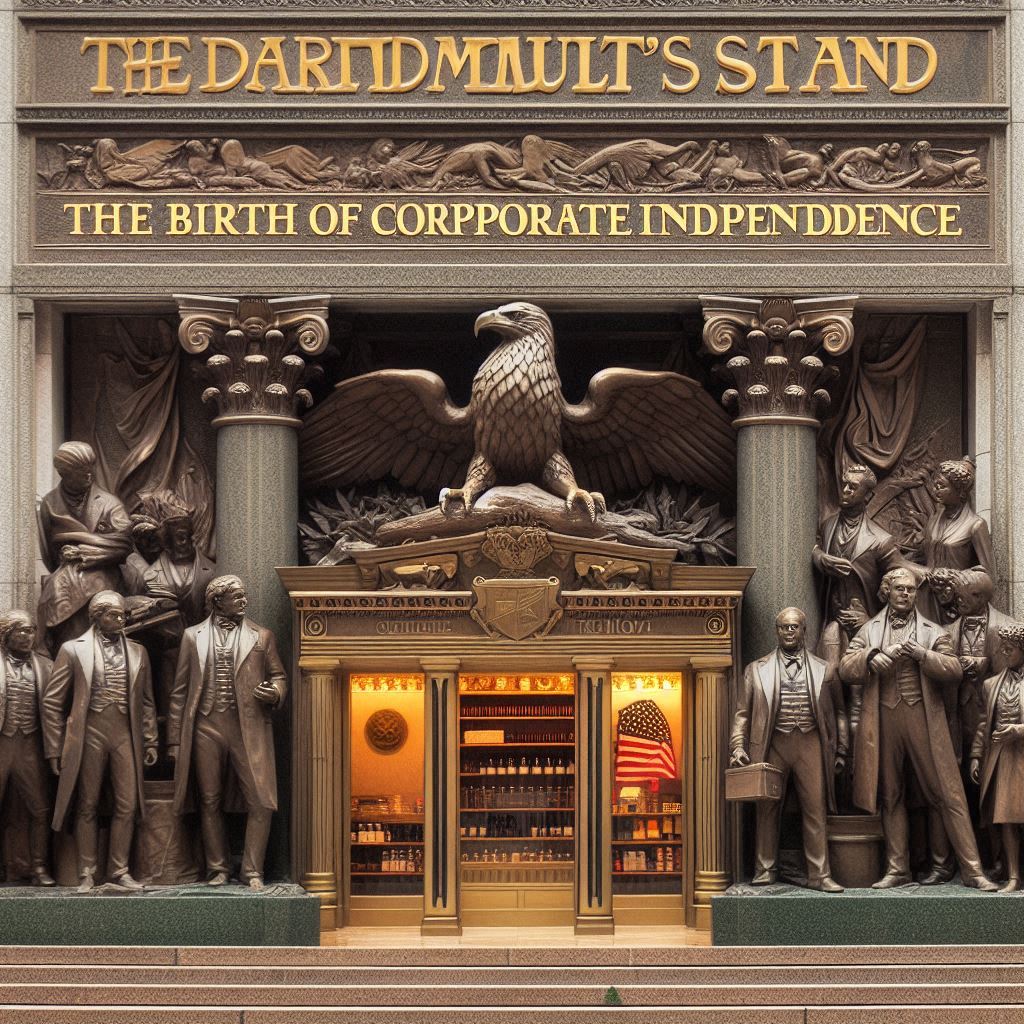Trustees of Dartmouth College v. Woodward, 17 U.S. (4 Wheat.) 518 (1819), marked a pivotal moment in United States corporate law, addressing the Contracts Clause of the U.S. Constitution as it pertains to private corporations. The case emerged when Dartmouth College’s president was ousted by its trustees, prompting the New Hampshire legislature to attempt converting the college into a public institution and placing trustee appointment powers in the hands of the governor. The Supreme Court upheld the original charter’s sanctity, predating the state’s formation. This decision clarified the distinction between public and private charters and spurred the growth of American business corporations and the free enterprise system.
Background of the case:
In 1769, King George III of Great Britain granted a charter to Dartmouth College, defining its purpose, governance structure, and land grants. In 1816, over three decades after the American Revolution, the New Hampshire legislature amended Dartmouth’s charter to reinstate the deposed president, transfer appointment powers to the governor, add new trustees, and create a state-controlled board with veto power over trustee decisions. This effectively converted Dartmouth from a private to a public institution. The College’s records, corporate seal, and other properties were seized.
The trustees objected and sought to have the legislature’s actions declared unconstitutional. They retained Dartmouth alumnus Daniel Webster, a New Hampshire lawyer who later became a U.S. Senator and Secretary of State. Webster argued the case against William H. Woodward, the state-appointed secretary of the new board. Webster’s impassioned defense of Dartmouth, describing it as “a small college, and yet there are those who love it,” was so moving that it helped convince Chief Justice John Marshall.
Judgement:
On February 2, 1819, the Court ruled in favor of Dartmouth College, invalidating the New Hampshire Legislature’s act and allowing the college to remain a private institution, reclaiming its buildings, seal, and charter. Chief Justice Marshall wrote the majority opinion, affirming the sanctity of contracts as essential to the republic, as previously noted in Fletcher v. Peck.
The Court determined that Dartmouth’s charter was a contract between private parties—the King and the trustees that the legislature could not alter. Even though the U.S. was no longer under royal rule, the Constitution prohibits states from impairing contracts. The government commissioning the charter did not make the school a civil institution. Marshall’s opinion highlighted that “contract” referred to individual property rights, not the political relationships between the government and its citizens.
Significance:
The decision was not without precedent; in Fletcher v. Peck (1810), the Court invalidated a state act, concluding that contracts, even those procured illegally (like a land contract in that case), cannot be nullified by state legislation. Fletcher’s decision was unpopular, sparking a public outcry. Thomas Jefferson, in his correspondence with New Hampshire Governor William Plumer, essentially argued that the living have dominion over the earth. Public sentiment led some state courts and legislatures to assert that states had the absolute right to amend or repeal corporate charters. However, the courts have imposed limitations on this.
Following the Dartmouth decision, many states sought more control, passing laws or constitutional amendments granting themselves the general right to alter or revoke charters at will a valid reservation, as courts found. However, the courts established that altering or revoking private charters must be reasonable and not harm the members.
This case is traditionally viewed as one of the most significant Supreme Court rulings, strengthening the Contracts Clause and limiting states’ power to interfere with private charters, including those of commercial enterprises.

